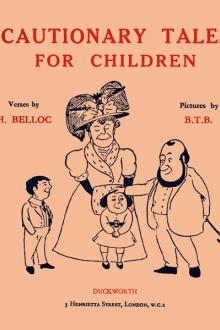Wieland; Or, The Transformation: An American Tale, Charles Brockden Brown [reading diary .txt] 📗

- Author: Charles Brockden Brown
Book online «Wieland; Or, The Transformation: An American Tale, Charles Brockden Brown [reading diary .txt] 📗». Author Charles Brockden Brown
I needed no further information as to the cause and issue of this journey. The scheme of happiness to which he had devoted his thoughts was blasted by the discovery of last night. My preference of another, and my unworthiness to be any longer the object of his adoration, were evinced by the same act and in the same moment. The thought of utter desertion, a desertion originating in such a cause, was the prelude to distraction. That Pleyel should abandon me forever, because I was blind to his excellence, because I coveted pollution, and wedded infamy, when, on the contrary, my heart was the shrine of all purity, and beat only for his sake, was a destiny which, as long as my life was in my own hands, I would by no means consent to endure.
I remembered that this evil was still preventable; that this fatal journey it was still in my power to procrastinate, or, perhaps, to occasion it to be laid aside. There were no impediments to a visit: I only dreaded lest the interview should be too long delayed. My brother befriended my impatience, and readily consented to furnish me with a chaise and servant to attend me. My purpose was to go immediately to Pleyel's farm, where his engagements usually detained him during the day.
Chapter XII
My way lay through the city. I had scarcely entered it when I was seized with a general sensation of sickness. Every object grew dim and swam before my sight. It was with difficulty I prevented myself from sinking to the bottom of the carriage. I ordered myself to be carried to Mrs. Baynton's, in hope that an interval of repose would invigorate and refresh me. My distracted thoughts would allow me but little rest. Growing somewhat better in the afternoon, I resumed my journey.
My contemplations were limited to a few objects. I regarded my success, in the purpose which I had in view, as considerably doubtful. I depended, in some degree, on the suggestions of the moment, and on the materials which Pleyel himself should furnish me. When I reflected on the nature of the accusation, I burned with disdain. Would not truth, and the consciousness of innocence, render me triumphant? Should I not cast from me, with irresistible force, such atrocious imputations?
What an entire and mournful change has been effected in a few hours! The gulf that separates man from insects is not wider than that which severs the polluted from the chaste among women. Yesterday and to-day I am the same. There is a degree of depravity to which it is impossible for me to sink; yet, in the apprehension of another, my ancient and intimate associate, the perpetual witness of my actions, and partaker of my thoughts, I had ceased to be the same. My integrity was tarnished and withered in his eyes. I was the colleague of a murderer, and the paramour of a thief!
His opinion was not destitute of evidence: yet what proofs could reasonably avail to establish an opinion like this? If the sentiments corresponded not with the voice that was heard, the evidence was deficient; but this want of correspondence would have been supposed by me if I had been the auditor and Pleyel the criminal. But mimicry might still more plausibly have been employed to explain the scene. Alas! it is the fate of Clara Wieland to fall into the hands of a precipitate and inexorable judge.
But what, O man of mischief! is the tendency of thy thoughts? Frustrated in thy first design, thou wilt not forego the immolation of thy victim. To exterminate my reputation was all that remained to thee, and this my guardian has permitted. To dispossess Pleyel of this prejudice may be impossible; but if that be effected, it cannot be supposed that thy wiles are exhausted; thy cunning will discover innumerable avenues to the accomplishment of thy malignant purpose.
Why should I enter the lists against thee? Would to heaven I could disarm thy vengeance by my deprecations! When I think of all the resources with which nature and education have supplied thee; that thy form is a combination of steely fibres and organs of exquisite ductility and boundless compass, actuated by an intelligence gifted with infinite endowments, and comprehending all knowledge, I perceive that my doom is fixed. What obstacle will be able to divert thy zeal or repel thy efforts? That being who has hitherto protected me has borne testimony to the formidableness of thy attempts, since nothing less than supernatural interference could check thy career.
Musing on these thoughts, I arrived, towards the close of the day, at Pleyel's house. A month before, I had traversed the same path; but how different were my sensations! Now I was seeking the presence of one who regarded me as the most degenerate of human kind. I was to plead the cause of my innocence, against witnesses the most explicit and unerring, of those which support the fabric of human knowledge. The nearer I approached the crisis, the more did my confidence decay. When the chaise stopped at the door, my strength refused to support me, and I threw myself into the arms of an ancient female domestic. I had not courage to inquire whether her master was at home. I was tormented with fears that the projected journey was already undertaken. These fears were removed, by her asking me whether she should call her young master, who had just gone into his own room. I was somewhat revived by this intelligence, and resolved immediately to seek him there.
In my confusion of mind, I neglected to knock at the door, but entered his apartment without previous notice. This abruptness was altogether involuntary. Absorbed in reflections of such unspeakable moment, I had no leisure to heed the niceties of punctilio. I discovered him standing with his back towards the entrance. A small trunk, with its lid raised, was before him in which it seemed as if he had been busy in packing his clothes. The moment of my entrance, he was employed in gazing at something which he held in his hand.
I imagined that I fully comprehended this scene. The image which he held before him, and by which his attention was so deeply engaged, I doubted not to be my own. These preparations for his journey, the cause to which it was to be imputed, the hopelessness of success in the undertaking on which I had entered, rushed at once upon my feelings, and dissolved me into a flood of tears.
Startled by this sound, he dropped the lid of the trunk and turned. The solemn sadness that previously overspread his countenance, gave sudden way to an attitude and look of the most vehement astonishment. Perceiving me unable to uphold myself, he stepped towards me without speaking, and supported me by his arm. The kindness of this action called forth a new effusion from my eyes. Weeping was a solace to which, at that time, I had not grown familiar, and which, therefore, was peculiarly delicious. Indignation was no longer to be read in the features of my friend. They were pregnant with a mixture of wonder and pity. Their expression was easily interpreted. This visit, and these tears, were tokens of my penitence. The wretch whom he had stigmatized as incurably and obdurately wicked, now shewed herself susceptible of remorse, and had come to confess her guilt.
This persuasion had no tendency to comfort me. It only shewed me, with new evidence, the difficulty of the task which I had assigned myself. We were





Comments (0)